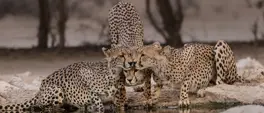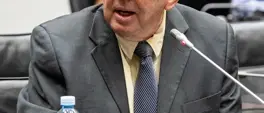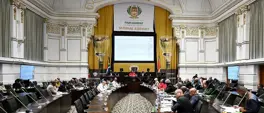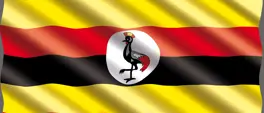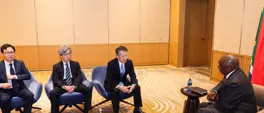South Sudan army to 'forcibly' disarm youth in volatile state
AFP
9 June 2025 | 17:28The young nation, which gained independence in 2011, has been plagued by insecurity and poverty despite its oil riches.
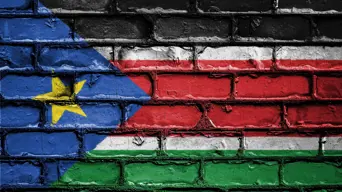
Picture: David Peterson/Pixabay
JUBA - South Sudan's army said Monday it would carry out a voluntary then "forceful" disarmament of young people in an area where President Salva Kiir has announced a state of emergency.
The young nation, which gained independence in 2011, has been plagued by insecurity and poverty despite its oil riches.
Kiir declared a six-month emergency in Warrap State and Mayom County last week after a surge of violent inter-communal cattle raids.
They are a frequent problem in South Sudan, where water is scarce and grazing lands heavily contested.
"There is too much violence," said a resident of Tonj North in Warrap State who gave only a single name, Lual, due to security fears.
"People have fled their homes, leaving the farmland, children are unable to go to school, they have no food and no shelter as most of their homes have been burned," he added.
The army has deployed forces to the area in order to conduct the disarmament, the South Sudan People's Defence Forces (SSPDF) spokesperson Lul Ruai Koang told reporters in the capital Juba on Monday.
Initially, it will be a "voluntary disarmament", he said, allowing armed youth in the area a "grace period of one week to voluntarily start handing over their weapons".
Then, he said, "SSPDF forces will launch coordinated and simultaneous forceful disarmament exercises in Warrap and Mayom County".
"Failure will result in the administration of harsh and punitive measures," he added.
The threat was already having an effect, the local resident told AFP.
"We hear rumours that (some) have stopped fighting in fear of the state of emergency or forceful disarmament," said Lual.
But he added there are worries the army campaign "can affect innocent people."
Earlier this month, the UN said cattle raids and revenge attacks had killed hundreds since December, including over 200 in March and about 80 in recent days.
The clashes come on top of politically and ethnically driven violence in a country still recovering from civil war between 2013 and 2018.
Get the whole picture 💡
Take a look at the topic timeline for all related articles.


